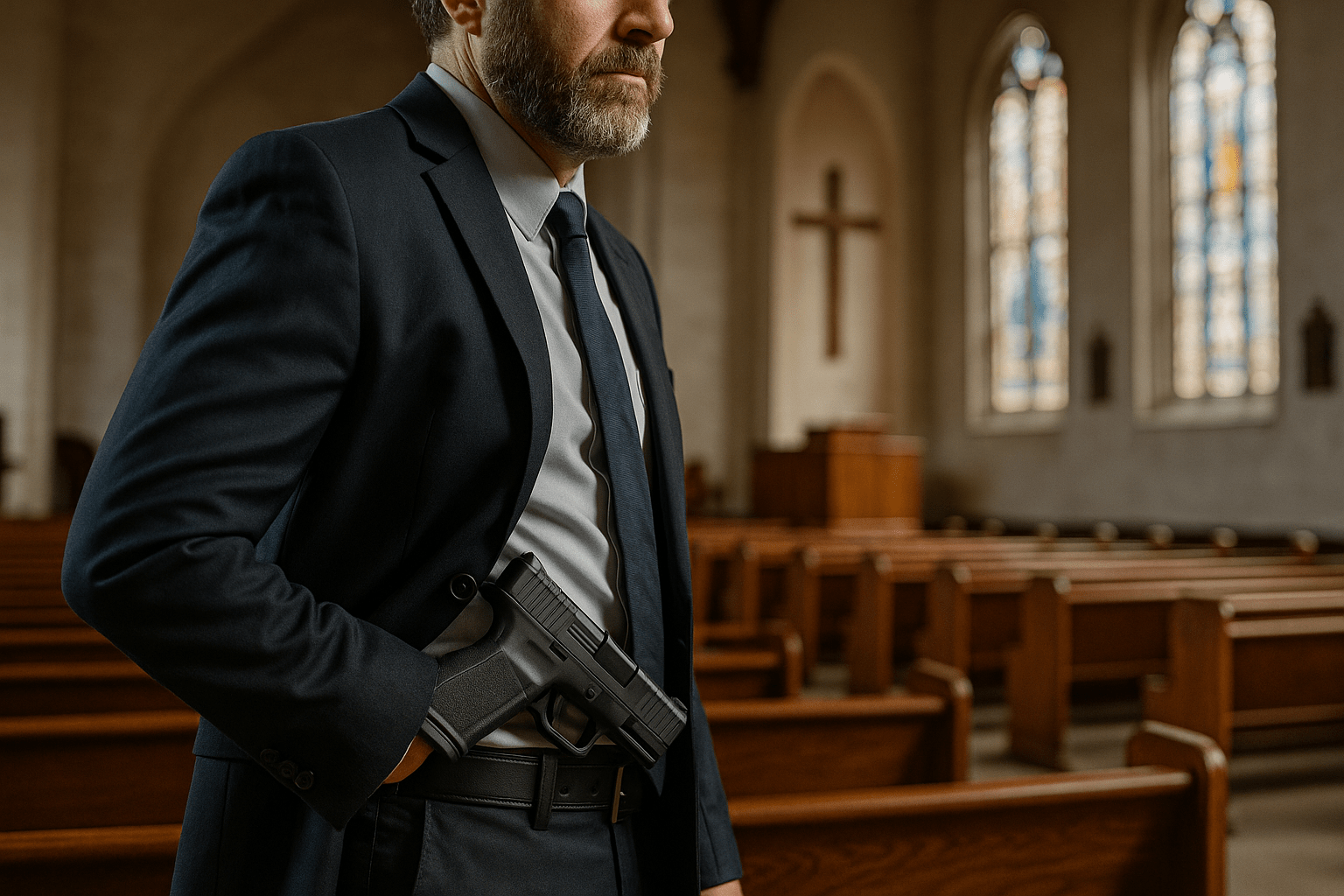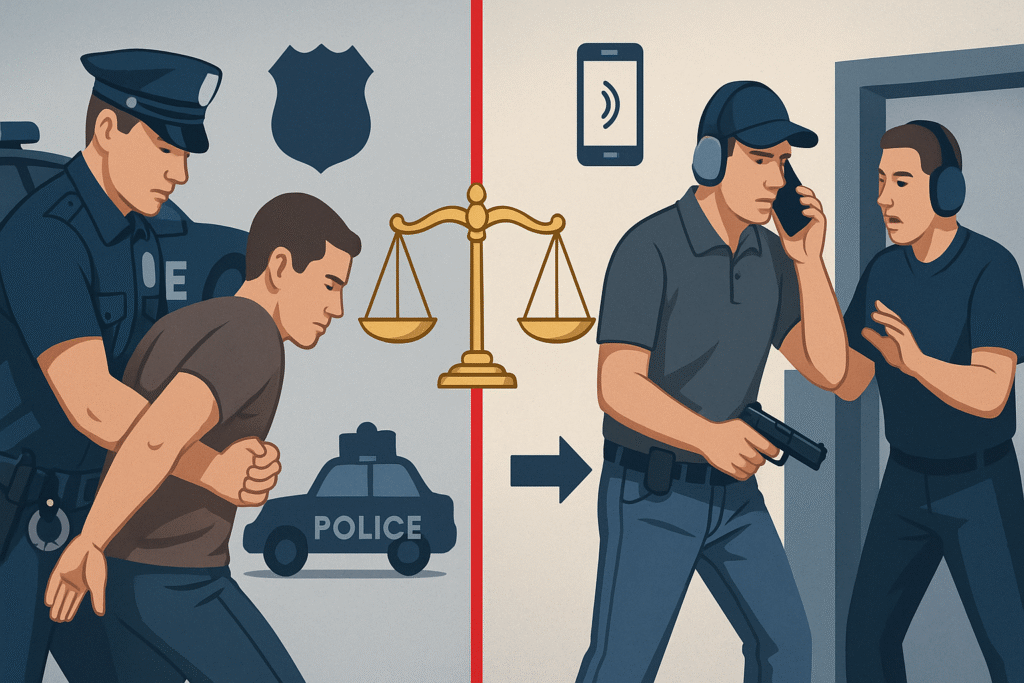Armed in the House of God: The Dangerous Illusion of Preparedness
Let’s stop pretending. Carrying a gun to church doesn’t make you a protector — it makes you a liability if you’re not trained, disciplined, and legally grounded. We live in a world where sanctuaries are targets, where pastors get ambushed mid-sermon, and where innocent people pay the price for someone else’s fantasy of heroism. If that makes you uncomfortable, good. Because comfort is killing our competence.
The Harsh Truth: Most Armed Civilians Aren’t Ready
Every Sunday, pews across America hold men and women who think that a holstered pistol equals preparedness. It doesn’t. A firearm in untrained hands is just a faster way to make a tragedy worse.
Here’s what no one wants to say out loud:
-
Most civilian carriers have never trained in a live, moving, chaotic environment.
-
They’ve never fired under pressure, never identified targets through panicked crowds, never made a shoot/no-shoot decision in two seconds flat.
-
Yet they’ll tell you they’re “ready.” That’s not confidence — that’s delusion.
That’s the Dunning–Kruger effect in its purest form — ignorance disguising itself as expertise. It’s the same false bravado that turns a safety tool into a liability and a worship hall into a crossfire trap.
Church Security Teams: Half Measures, Full Liability
Let’s talk about “church security teams.” Some are professional, disciplined, and legally vetted. Most aren’t.
They’re weekend warriors with radios, polos, and good intentions — but good intentions don’t stop bullets.
Too often, these teams:
-
Skip formal defensive shooting qualifications.
-
Don’t know how to coordinate with law enforcement once rounds start flying.
-
Have no medical response plan for the aftermath.
-
Operate without insurance coverage or legal vetting.
And when the chaos comes, they freeze, fumble, or fire blindly. That’s not security — that’s negligence wrapped in faith-based optimism.
If your “security plan” is a Facebook group and a few borrowed vests, you don’t have a plan. You have a lawsuit waiting to happen.
The Legal Fallout You Haven’t Thought About
You think you’re the hero because you carry. Wait until you pull that trigger and realize the world sees you differently.
-
Criminal charges: Even a “good shoot” can end with you in handcuffs while prosecutors dissect every decision you made.
-
Civil suits: Miss and hit a parishioner, and the victim’s family will own your house, your car, and your reputation.
-
Negligent entrustment: If a church lets an unqualified volunteer carry “for protection,” and it goes sideways, that pastor just inherited your mess.
-
Vicarious liability: The moment your church claims you as part of “security,” they’re on the hook for your actions — and most have no idea.
-
Insurance exclusions: You probably voided your coverage the second you brought a gun to service without a formal risk policy.
No one’s preaching this from the pulpit — but they should. Because ignorance of the law doesn’t save you in court. It buries you under it.
The Tactical Reality No One Wants to Admit
Let’s take a real-world example: you’re sitting at the front of the sanctuary. A shooter enters through the back doors.
You can’t take that shot safely — period.
You’ve got a hundred moving targets between you and the threat. People screaming, ducking, running, crossing your line of sight. That’s not a range drill. That’s chaos. If you fire and hit the wrong person, your badge of courage becomes a badge of guilt.
To act effectively in that scenario, you need structured, stress-tested, repeatable training under professionals who’ve been there, done that, and carry the scars to prove it.
Anything less is fantasy.
What Real Preparedness Looks Like
If you’re serious about defending your congregation, this is non-negotiable:
-
Professional Instruction — Train with certified licensed instructors who’ve worked real-world incidents, not YouTube tacticians.
-
Legal Education — Understand the use-of-force laws in your state down to the commas. Know when you’re right — and when you’re about to ruin your life.
-
Tactical Medical Training — Learn trauma care. Statistically, you’re more likely to save a bleeding victim than neutralize a shooter.
-
Clear SOPs and Vetting — Every team needs background checks, defined roles, and a clear chain of command.
-
Insurance & Legal Counsel — Before you strap on a gun for the church, make sure both you and the institution are legally and financially protected.
Otherwise, you’re gambling with lives — and faith doesn’t cover liability.
The Wake-Up Call
Every week, another “security volunteer” points a gun they can’t control. Every month, another church realizes too late that bravery without training is recklessness.
This has to stop.
If you carry to church, understand this: you are accountable for every round that leaves your muzzle. You are responsible for every consequence that follows. And if you aren’t willing to train like your life depends on it — because it does — then leave the gun at home and invest in proper instruction.






